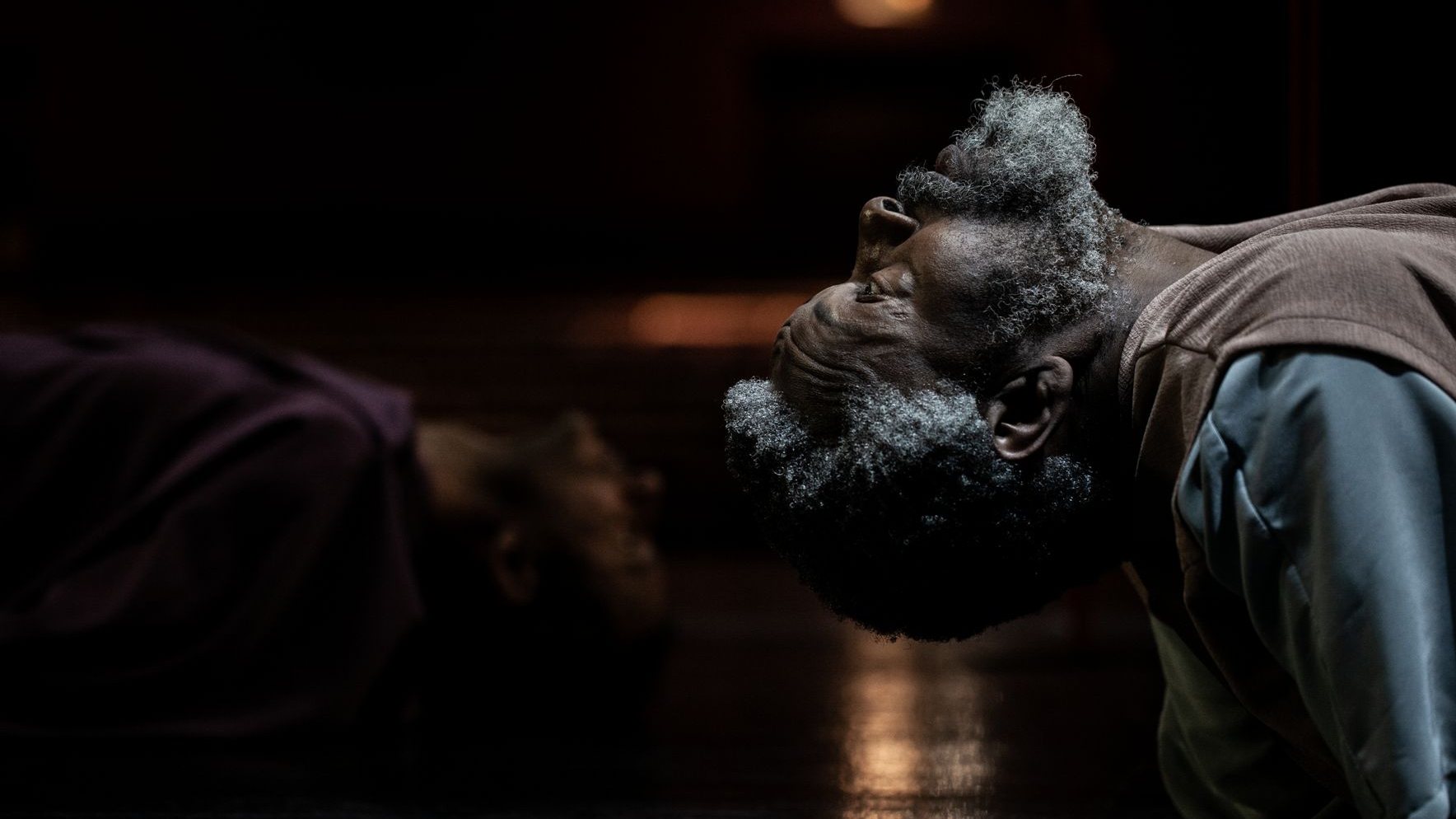“In the midst of the journey of our life I found myself in a dark forest…” Thus begins the great epic with which Dante Alighieri transforms Christianity into poetry, closing the doors of the Middle Ages and opening them to the Renaissance to come. “No Meio do Caminho” is also a work by the Griot collective that, after going through a more politically committed stage, advances fearlessly through a classic work. At the head of this unique work is the director Miguel Loureiro, who for nine months worked on Dante’s text to transform it into a one-hour and twenty-minute play. The result of these months of “laboratory” is the entry between the lines and the gaps in Alighieri’s text and its transformation into a dialogue where the body is as important as the words. The result is a piece where poetry joins drama, song and dance, in a work of great visual beauty. It is on the stage of the Cineteatro Louletano, in Loulé.
“Who are you?” asks Dante at the entrance to Purgatory. The question, made looking at infinity, is addressed to the many who lie condemned there, but it resounds, it leaves the stage, it is addressed to the public, to each one of us. About us? Where are we on the road? After all, what is this pilgrimage between hell, purgatory and paradise if not a portentous metaphor for the human condition? So portentous that he redefined the entire Christian imaginary of “life” after death, to the point of having created the expression “a Dantesque hell”? The strength of this poem, written by Vasco Graça Moura, has a strong “cinematic component”, it comes from an imaginary as rich as linguistics, where the ethereal is combined with the everyday, to the point of becoming almost a pamphlet, says VGM . .
Dante, who had a hectic life, from many experiences made, met artists, courtiers and commoners, nobles, popes and all this reality and all his vast knowledge in areas ranging from music to mathematics, will integrate it into the poem thus creating “a tension between the individual microcosm and the macrocosm, the confrontation of the concrete individual with the universe”, also considers Graça Moura.
This article is exclusive to our subscribers: subscribe now and benefit from unlimited reading and other benefits. If you are already a subscriber, log in here. If you think this message is an error, please contact our customer service.
Source: Observadora
